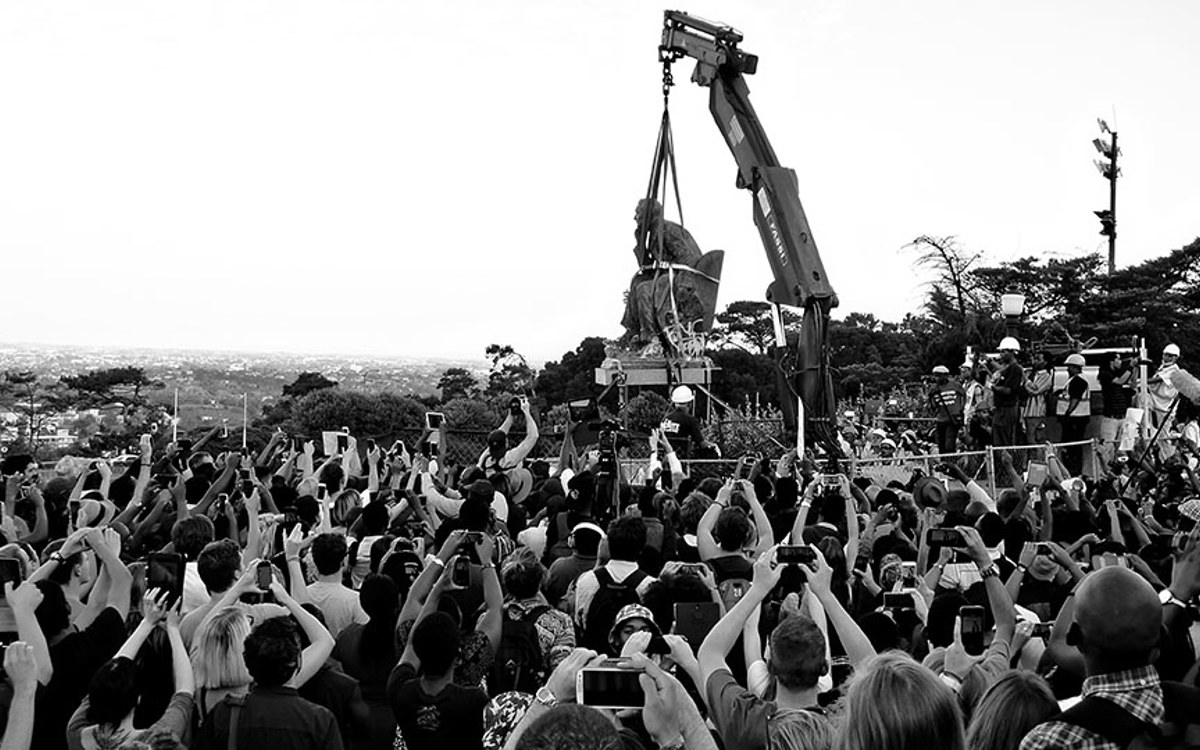

Caryn Thandi Peterson
Caryn Thandi Petersen is a Commonwealth Scholar and a PhD candidate in Sociology (Women and Gender) at the University of Warwick.
In the year following the fall of legalised apartheid in South Africa, the country commemorated its first Reconciliation Day on December 16 1995. It was on this day that the first gathering of the Truth and Reconciliation Commission (TRC) was held, led by Archbishop Desmond Tutu. Seeking to make sense of a brutal past by publicly rehearsing the formation of memory, the commission was set up as a space where speaking could begin and silencing end. Illuminating some of the most appalling atrocities committed under decades of white minority rule, the TRC took over 20,000 statements from victims and heard confessions from more than 7,000 perpetrators. It was the first step in attempting to deal with a white supremacist government that caused the deaths of thousands of Black South Africans through political violence and the torture, exploitation and dispossession of millions more.
Two decades after the hearings, Desmond Tutu lamented the commission's 'unfinished business' of healing, stating that it 'was a beginning, not an end'. Surveying the current landscape, it is not hard to see how this unfinished business has manifested a scarred, traumatised and polarised country. South Africa is the most unequal nation on earth: the majority of the Black population remain in poverty, while pervasive gender inequity has fostered some of the highest incidences of reported rape and femicide – despite having high rates of female representation in parliament and a constitution that is widely regarded as the most progressive in the world. The jubilance marking the end of apartheid has faded to reveal the chasms that still divide and the wounds that have not yet healed.
My parents served as committed anti-apartheid activists and were involved in the work of reconciliation during the fraught period of transition. Although our family lived through years of trauma as my parents were harassed and my father detained by apartheid security police, whiteness protected us from the daily horrors of dehumanisation experienced by the majority of the population. From a young age, I have been acutely aware of the power of white privilege and the shield it provides against the 'faces' of oppression, as termed by Iris Marion Young: namely violence, exploitation, marginalisation, powerlessness, and cultural imperialism.
This awareness has shaped my commitment to social justice and the cultivation of an anti-racist, anti-sexist society. After completing my MA in Diversity and the Media, I applied for a Commonwealth Scholarship last year, in the hope of doing a PhD in the field of Women and Gender, focusing on the impact of decolonial student-led activist movements in South Africa and the UK.
Since 2015, a wave of decolonial activism has swept South Africa's universities, with impact being felt on campuses across the globe. The 'Fallist' movement erupted at the University of Cape Town under the moniker #RhodesMustFall, with students perceiving the university as a microcosm of the spatial apartheid characterising the city; the toppling of British colonialist Cecil Rhodes' statue was a symbolic starting point in the project of liberating the university and forging a new intellectual space. Challenging institutional racism, colonial iconography, and the hegemony of Eurocentric epistemologies and knowledge production, the student movement led to national protests against the commodification of education and neoliberal outsourcing practices. Insisting on an intersectional approach, Black women have been at the helm of this activism, broadening the decolonising agenda to address concerns with systemic patriarchy and gender-based violence.
As the movement transcended national boundaries, it found root in long-held frustrations at Oxford, while calls to decolonise the academy continue to abound through sister movements and campaigns across British universities. Although these movements encompass a multitude of aims and strategies, underpinning them is an attempt to disrupt historical amnesia around imperial legacies, connecting these issues to present-day inequalities. From Canada to Malaysia, Australia to the Netherlands, academic institutions are faced with the urgent need to redress historical injustices, confronting the politics of knowledge practices and the university's implicated position in reinforcing and reproducing colonial social constructions and hierarchies.
My research seeks to explore the meanings and implications of contemporary expressions of decolonial activism in South Africa and its spread to British universities. I believe that in order to tackle the pressing challenges of global inequalities, we need to start with an appreciation of how deep the roots of racism run: centuries of slavery, genocide, oppression and segregation have shaped the DNA of our societies. Rather than papering over the savageries that constitute the 'histories of the present', the decolonial turn1 is one where these legacies are interrogated, so that the structures, policies, imaginaries and conditions that sustain racial and gender inequity can be subverted.
Higher education has a pivotal role to play in these transformative movements, signalled by the mandate taken up by universities throughout South Africa to decolonise the curriculum and instigate a process of transforming institutional and epistemological frameworks. In the UK, universities such as SOAS are making formal commitments to delivering a decolonising agenda.
I am honoured to have received a scholarship from the CSC in order to complete research on this topic. It is a particular honour to be connected with the work of the ACU and included in its Peace and Reconciliation Network, which brings universities together to discuss their role in addressing imperial legacies and historical injustices. My own history has been informed by a deep appreciation of the critical need for this work; South Africa's violent history of colonialism and apartheid has fostered a legacy of trauma that continues to impact society at every level. Indeed, the work of reconciliation remains 'unfinished business'; it is an ever-evolving project, taking a myriad of different forms across a diverse array of contexts. I hope to play a small part in this momentous task.
(1) Grosfoguel, Ramón. "The epistemic decolonial turn: Beyond political-economy paradigms." Cultural studies 21, no. 2-3 (2007): 211-223.
Image: Rhodes Must Fall movement in South Africa (image credit: Desmond Bowles)
